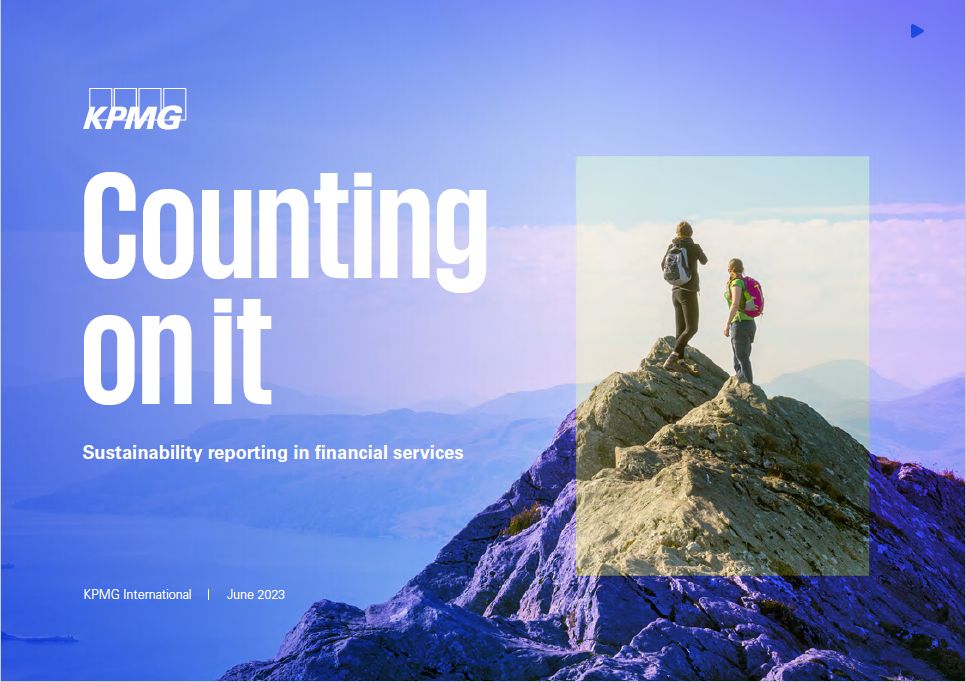KPMG's 12th edition of its biennial Big shifts, small steps: Survey of Sustainability Reporting 2022, examines sustainability reporting trends around the world. Over the past two decades, sustainability reporting has been largely voluntary, so the purpose of the recent survey aimed to offer meaningful insights about how to improve levels of disclosure by business leaders, sustainability professionals, and company boards.
Our surveys have shown that sustainability reporting has become an accepted part of disclosure and transparency for many large companies, with a continued uptake of sustainability reporting globally and increasing integration into mainstream financial reporting. With this increased transparency comes greater accountability for action around reducing carbon emissions, halting biodiversity loss, and tackling societal inequality. Yet, this work is challenging and growth in reporting has slowed as companies focus inward, assessing the investment necessary to mitigate their risks and take advantage of the opportunities that have come to light.
Counting on it: Sustainability Reporting in Financial Services provides analysis and insight into the findings of the financial service sector from the KPMG's 2022 'Survey of Sustainability Reporting.
The financial services sector, at organisational levels, is accustomed to regulatory compliance and reporting requirements — possibly more than any other sector.
Companies and institutions in the financial services sector are beset with challenges and dilemmas that can — according to the 2022 Survey of Sustainability Reporting — make them appear to not keep pace with other sectors reporting on ESG topics.
Some of these constraints include:
- Lack of universally accepted metrics, global targets, and gaps in data.
- Unavoidable reliance on usually limited and disparate third-party data from value and supply chains
- Cost of technology upgrades required to report according to new and emerging standards.
- Lack of consistency and accuracy in what real economy companies are reporting.
- Attitudes and sector culture, where reporting financial data has always been the priority.
Any one or combination of these tangible factors can make sustainability reporting complex, inconsistent, and unreliable. As a result, the financial services sector is understandably reluctant to report voluntarily, particularly from an intensely regulated environment that regularly issue reports necessarily rooted in integrity and precision.
While the survey results present the data and analytics side of the story, our work on the ground presents a side that gives reason for optimism.
KPMG member firm engagements suggest that most financial services firms are working towards sustainability reporting. While we see this more prevalently among the leading, more mature markets, we also see it across the global portfolio. Financial services organisation have demonstrated to us that the sector is more advanced than generally known.

Counting on it: Sustainability Reporting in Financial Services
Examining sustainability reporting trends in financial services around the world to offer meaningful insights to improve levels of disclosures
Download PDF (1.9 MB)
Connect with us
For more information about how KPMG professionals can assist organisations in fulfilling their purpose and achieving their ESG goals, connect with us today.
